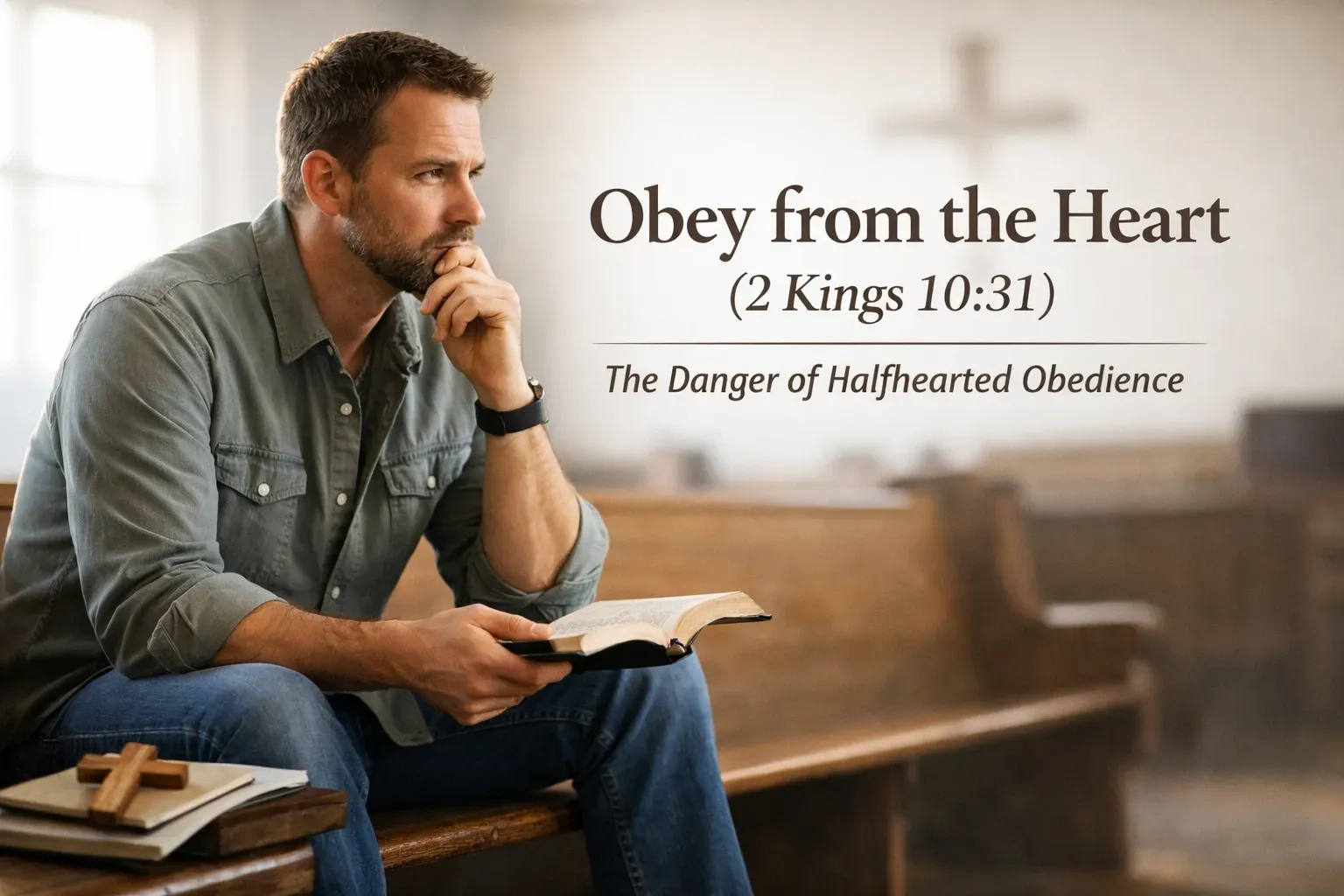very few people really deserve the vindication they think they are entitled to
Great Gleanings from Today's Readings

This means that when Satan attacks your body, he is attacking the one means God has of revealing his grace and love to a lost world. Creation reveals the power, wisdom, and glory of God; but Christians reveal the grace and love of God.
Not only is your body God’s temple, but it is also God’s tool.
Warren W. Wiersbe,
The Strategy of Satan: How to Detect and Defeat Him (Wheaton, IL: Tyndale House Publishers, 1996), 40.
*************************
Satan cannot touch the child of God without the heavenly Father’s permission. This is a great encouragement to us, for we know that whatever suffering may come to our lives, God has ordained it and is in complete control. The one thing God will not control is how we respond to this suffering, and it is here that Satan can gain his purpose.
Warren W. Wiersbe, The Strategy of Satan: How to Detect and Defeat Him (Wheaton, IL: Tyndale House Publishers, 1996), 44.
*************************
Impatience is a mark of immaturity.
But impatience is also a mark of unbelief.
Warren W. Wiersbe, The Strategy of Satan: How to Detect and Defeat Him (Wheaton, IL: Tyndale House Publishers, 1996), 48–49.
*************************
The only way we can learn patience is by going through the trials that God assigns to us. The trials of life are the tools God uses to mature us, to build our faith, and to get us to trust the Spirit and not the flesh.
When you find yourself impatient, you can be sure that Satan and the flesh are at work, and that you are in danger of making a wrong decision.
Warren W. Wiersbe,
The Strategy of Satan: How to Detect and Defeat Him (Wheaton, IL: Tyndale House Publishers, 1996), 51.
*************************
God may not change the circumstances, but he will change you so that the circumstances will work for you and not against you.
Warren W. Wiersbe,
The Strategy of Satan: How to Detect and Defeat Him (Wheaton, IL: Tyndale House Publishers, 1996), 55.
*************************
The irony is that, instead of “getting something off our chest,” our words can cause an uncontrollable fire to erupt and incinerate what remains inside us. And instead of that fire subsiding, it doubles, intensifies, and gets a thousand times worse in the end. It is a satanic victory, ultimately traceable to our keeping a record of wrongs.
How does a person deal with their tongue? Two things, I believe, will help:
• When a person does wrong, refuse to point it out to the person himself.
• When a person does wrong, refuse to point it out to others.
If this were to become a more popular lifestyle, the number of records kept would plummet! By refusing to continually bring up the hurt in conversations, the record of that hurt would eventually disappear.
This principle also applies to imaginary conversations—those internal dialogues with yourself in which you can’t get “what they did” off your mind. You may fantasize what you will say or do to them, or what you might tell other people about them. This conversation may go on and on—and hours and days may pass when you neither accomplish anything nor feel any better!
*************************
Love not only tears up the record of wrongs but also the list of rights. True forgivers destroy the record they might have used to vindicate themselves. If there is no record of rights lodged firmly in your head, you will not be able to refer to it later to prove how right you were. Forget what they did that was wrong, and forget what you did that was right. Paul said, “I do not even judge myself” (1 Cor. 4:3). I have often concluded that very few people really deserve the vindication they think they are entitled to. I can only say that if vindication is truly deserved, then that vindication will surely come, for God is just.
*************************
Forgiving oneself means to experience the love that keeps no record of our own wrongs. This love is a choice, as we have seen, and to cross over to the place where we choose to forgive ourselves is no small step.
*************************
Not forgiving ourselves is a subtle way of competing with Christ’s atonement. God has already punished Jesus for what we did. (See 2 Corinthians 5:17.) When we don’t accept our own forgiveness, we are punishing ourselves. Instead of accepting Jesus’s sacrifice, I want to punish myself for my failures. This competes with Christ’s finest hour.
R. T. Kendall,
Total Forgiveness: When Everything in You Wants to Hold a Grudge, Point a Finger, and Remember the Pain - God Wants You to Lay It All aside (Lake Mary, FL: Charisma House, 2010).
*************************
The more God’s word saturates our minds, the clearer our grasp on what’s important to him and the stronger our prayers.
Joni Eareckson Tada,
When God Weeps: Why Our Sufferings Matter to the Almighty (Grand Rapids, MI: Zondervan, 2010).
*************************
We cannot state too strongly in an age when the … body has crept up on the throne of the soul, that our work is not … a philanthropic work, a political work, a secular work of any sort whatsoever; it is a spiritual and a religious work.… Religion is spiritual life. I had rather plant one seed of the life of Christ under the crust of heathen life than cover that whole crust over with the veneer of our social habits … of Western civilization.
Ruth A. Tucker,
From Jerusalem to Irian Jaya: A Biographical History of Christian Missions, Second Edition (Grand Rapids, MI: Zondervan, 2004), 326.
*************************
One of the greatest detriments to the growth of Christianity in India, he believed, was the presumed relationship between Christianity and Western civilization, and missionaries were the culprits in perpetuating this ill-advised union.
Ruth A. Tucker,
From Jerusalem to Irian Jaya: A Biographical History of Christian Missions, Second Edition (Grand Rapids, MI: Zondervan, 2004), 330.
*************************
That night marked a change in my conception of the work of the Christian minister—he is to be, not God’s lawyer to argue well for God; but he is to be God’s witness, to tell what Grace has done for an unworthy life.
Ruth A. Tucker,
From Jerusalem to Irian Jaya: A Biographical History of Christian Missions, Second Edition (Grand Rapids, MI: Zondervan, 2004), 331.
*************************
The term faith mission has often been associated with those missions whose financial policy guarantees no set income for its missionaries, and some such missions carry the policy to the point of refusing to solicit funds or even make known the needs of the missionaries, thus professing to rely entirely on God for financial needs. But the concept of living entirely by faith went far beyond the matter of finances. The missions were born out of faith, often at great risk and resulting in a high mortality rate among the early faith missionary pioneers.
Ruth A. Tucker,
From Jerusalem to Irian Jaya: A Biographical History of Christian Missions, Second Edition (Grand Rapids, MI: Zondervan, 2004), 335–336.
*************************
His missionary training concept launched the Bible institute movement that spread out across North America and became the primary recruiting grounds for independent faith mission societies in the decades that followed.
Ruth A. Tucker,
From Jerusalem to Irian Jaya: A Biographical History of Christian Missions, Second Edition (Grand Rapids, MI: Zondervan, 2004), 339.
*************************
“It is characteristic of the God-intoxicated, the dreamers and mystics of the Kingdom, that their flight-range is greater than that of other men. Their ability to sweep upward to unbelievable heights of spiritual transport is equaled only by their sad power to descend, to sit in dazed dejection by the River Chebar or to startle the night watches with their lonely grief.”
Ruth A. Tucker,
From Jerusalem to Irian Jaya: A Biographical History of Christian Missions, Second Edition (Grand Rapids, MI: Zondervan, 2004), 340.
*************************
A pastor sometimes fails in his first charge, but makes a success of his second or even third pastorate
. Because, however, money is available to support a pastor from the very beginning of a particular congregation’s existence, the members become accustomed to having a pastor while their ideas are still pliable, and learn how to respect him even though his position is not hedged about with special privileges. Once a church has governed itself for a number of years without a pastor, only a man with outstanding qualities can manage to establish himself. The development of the work in the rural areas of Chile has followed the same general pattern as in Peru. Pastors are scarce because the people are poor and as a result initial growth has been followed by stagnation. The conclusion must be that in Peru and Chile pastors are from the start essential for democratically governed churches, if later stagnation is to be avoided. Also that pastors cannot be established in anything like adequate numbers without money being available. Either the members of a nascent church must themselves be reasonably prosperous or the mission must be prepared to give a subsidy till the church has built up its strength.
Kessler,
Conflict in Missions
*************************
I often say that trials and tests locate a person. In other words, they determine where you are spiritually. They reveal the true condition of your heart. How you react under pressure is how the real you reacts.
John Bevere, The Bait of Satan, 20th Anniversary Edition (Lake Mary, FL: Charisma House, 2014), 86.











